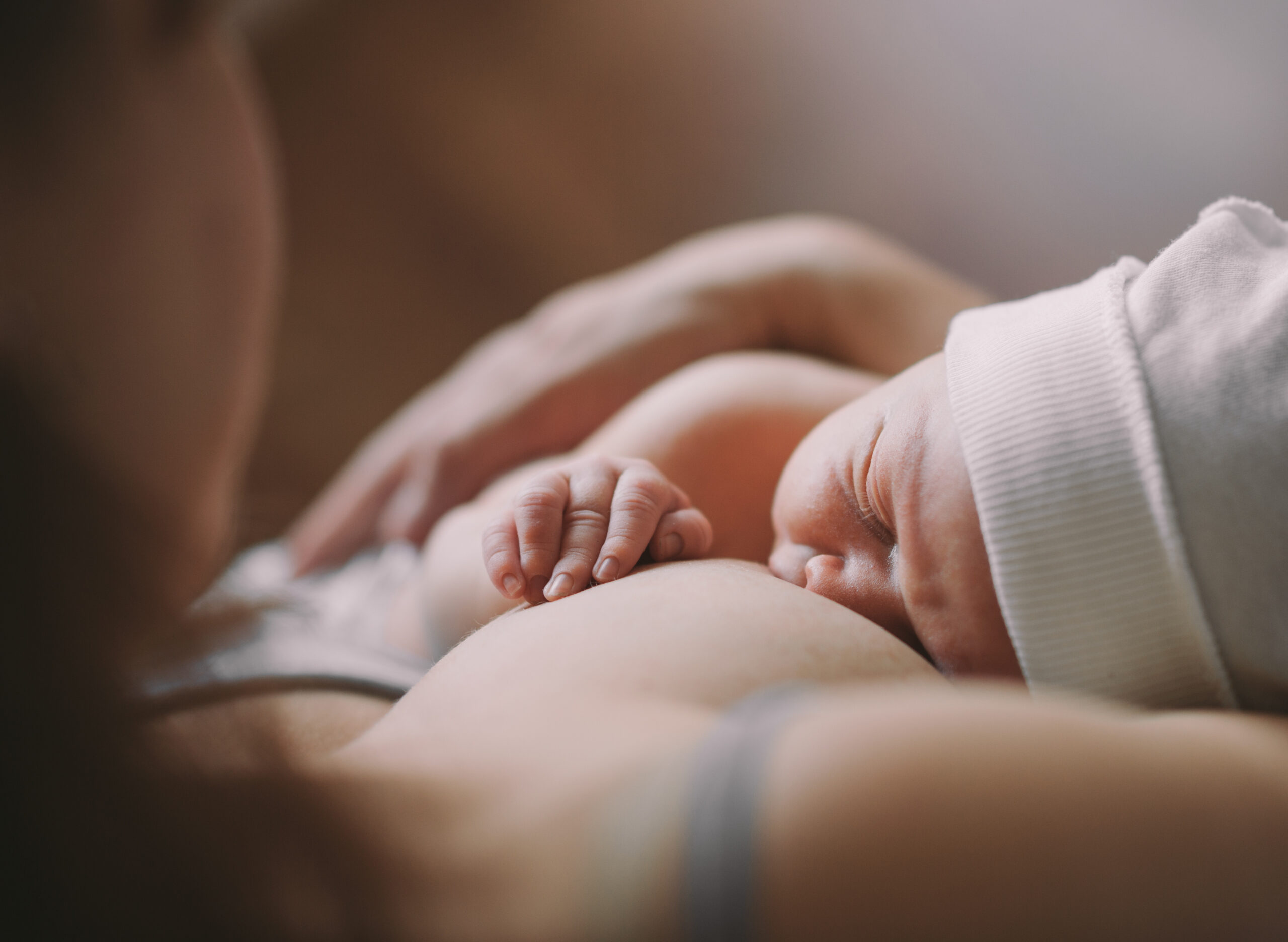October is breast cancer awareness month. In this blog post we will discuss how breastfeeding and breast cancer are related.
The primary connection between breast cancer and breastfeeding is the known protective effect breastfeeding has on the risk of developing breast cancer. Yet there is another important consideration when reviewing these topics together – how breastfeeding can be impacted by a past or present breast cancer diagnosis. We explore both of these relationships between breast cancer and breastfeeding below.
Breastfeeding can be protective against breast cancer
Many studies have reported inverse relationships between breastfeeding and breast cancer risk, meaning that women who have previously breast fed are less likely to develop breast cancer.
This finding has been repeated in many studies, including systematic reviews and meta-analyses (papers that group and analyse data from multiple studies and often encompass thousands of participants).
The main findings are:
- Breastfeeding reduces the risk of developing breast cancer in general.
- Longer durations of breastfeeding provide increased levels of protection, for example one meta-analysis found that breastfeeding for a duration of 6-12 months showed the most protective impact while another found that continued breastfeeding beyond 12 months was consistently associated with reduced risk of breast cancer.
- Findings from multiple reviews suggest that the protective impact is more significant for pre-menopausal cancers vs those that develop post-menopausally.
- There are many other more impactful risk factors associated with breast cancer development, but breastfeeding can be one modifiable risk factor for breast cancer prevention.
A study published this week shows new insights into understanding how breastfeeding protects from breast cancer development.
This study reports an immunological change in the breast tissue of animals and women after pregnancy and breastfeeding. They noticed an accumulation of T cells within the breasts after breastfeeding that helped to slow and stop tumor growth.
There is more to understand about the mechanisms behind this protective effect but researchers are consistently uncovering supporting evidence showing that breastfeeding really can alter breast cancer risks.
Breastfeeding after a breast cancer diagnosis
Is breastfeeding possible after a breast cancer diagnosis? Yes, it can be for some people.
Is breastfeeding possible after breast cancer surgery? Again, yes, it can be for some.
Whether breastfeeding is possible for you after your breast cancer diagnosis and / or treatment will depend on your individual case.
For women who have had a diagnosis and treatment is ongoing or paused, breastfeeding may be an option. It is very important to discuss this with your treatment team as they will need to carefully consider medications, treatment times and prognosis as well as your desire to breastfeed.
Breastfeeding is not advised in combination with chemotherapy, hormone treatment or targeted treatment. If having radiology treatment, breastfeeding can be possible but more difficult. If radiology treatment is occurring on one breast only, you may be able to breastfeed from the other breast without issues.
For those who have had previous surgery to remove breast cancer, it may be possible to breastfeed. This depends on how much breast tissue was removed, if you had treatment on one or both breasts and if you had other non-surgical treatments on the breast tissue that is remaining (radiology treatment can also impact breast tissue and breast milk production).
When there is healthy breast tissue remaining, breastfeeding can be explored. Particularly, if one breast has received no treatment or surgery. If this is the case, reach out to a lactation consultant for support before and during your breastfeeding journey.
Some things to consider when breastfeeding from one breast are:
- Milk production and storage capacity can vary between women and between breasts. You may find one breast can produce enough milk for your baby, but it is possible that some supplementation may be required.
- Similarly, it may take more time to build your supply to it’s full potential. Allow time for this to occur and seek support to ensure you are maximising supply whilst being careful to avoid over stimulation and engorgement.
- You may find it more achievable to express your breast milk rather than feed baby at the breast – this can be another great option. Seek support from your lactation consultant or midwife to do so.
For those whose treatment or breast cancer journey has impacted their ability to breastfeed, but who wish for their baby to receive breast milk, donor breast milk may be a solution. Get in touch with your closest milk bank to learn more about this option, these facilities are designed to provide breast milk for families who need it and will be more than willing to discuss with you.
Finally, for anyone going through a breast cancer diagnosis with the added consideration of how to feed your baby, this is a reminder to do what works best for your body. Navigating a cancer diagnosis and treatment alongside having a baby and exploring breastfeeding is a lot to manage emotionally, mentally and physically. Seek all the help you can to support each element of yourself in this journey and be kind to yourself along the way.
References
Murti, K., Juliandra, W., & Tua, S. (2025). Breastfeeding and Its Protective Role Against Breast Cancer: A Meta-Analysis of Surgical and Non-Surgical Cases. Journal of Society Medicine, 4(4), 124-130. https://doi.org/10.71197/jsocmed.v4i4.208
Now, B. C. Breastfeeding and breast cancer treatment. Retrieved Accessed 18/10/2025 from https://breastcancernow.org/about-breast-cancer/primary-breast-cancer/breast-cancer-in-younger-women/breastfeeding-and-breast-cancer-treatment#2-breastfeeding-after-surgery
Tiruneh, F. N., & Ntenda, P. A. M. (2024). Duration of Breastfeeding and Risk Reduction of Breast Cancer among Mothers Who Have Ever Breastfed: A Case-Control Study Conducted in Bahir Dar, Ethiopia. The Breast Journal, 2024(1), 1987378. https://doi.org/https://doi.org/10.1155/2024/1987378
Virassamy, B., Caramia, F., Savas, P., Harris, M. A., Pan, J.-W., Wang, J.,…kConFab, c. (2025). Parity and lactation induce T cell mediated breast cancer protection. Nature. https://doi.org/10.1038/s41586-025-09713-5
Zhou, Y., Chen, J., Li, Q., Huang, W., Lan, H., & Jiang, H. (2015). Association between breastfeeding and breast cancer risk: evidence from a meta-analysis. Breastfeed Med, 10(3), 175-182. https://doi.org/10.1089/bfm.2014.0141
